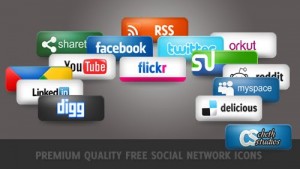Social media gains importance in the workplace every day, with companies following their employees’ blogs very closely and many organizations having their own official ones. For the last ten years, many people have lost their jobs because of what they have said on their personal blogs about their employers (see Murphy, 2006). It seems clear that HR takes this social media very seriously. Most big companies, like IBM, already have written policies on what is acceptable to say in personal as well as official blogs, whereas others choose not to limit bloggers, since any kind of blogpost can ultimately turn into publicity for the company, as Murphy mentions in her article, talking specifically about Microsoft.
The effect social media can have nowadays is massive. In dangerous countries where police are nonexistent or useless, people use social media to share information about difficult situations and help others in distress. Last year, when violence in Mexico reached unprecedented heights, I could see through Facebook how family and friends advised each other on a regular basis on which roads not to take because of police raids or which areas to avoid because of shootings happening at that precise moment. Sadly, we often see families sending pictures of kidnapped people through Facebook and email, in hopes of getting information on their whereabouts. Such postings have supposedly been useful in the past.
How we relate to others is undoubtedly changing, and social media is establishing a new kind of freedom, whether allowing us to raise our voice against our bosses, or connecting to our close ones in the midst of danger. Quoting Lewis Carroll again: “What a strange world we live in”. These are certainly strange times. I guess the only certain thing is that if social media has such power and influence it’s great to be able to use it for such significant things as saving lives in Mexico.
Murphy, Claire. Personnel Today, Mar 21, 2006: 26-27
http://search.proquest.com.ezproxy.library.ubc.ca/docview/229944834


